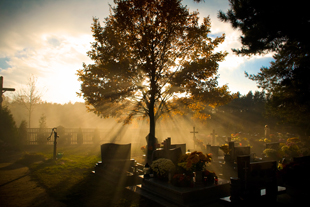First, a poem of honesty about what human beings can do to each other, i.e., our murderous instincts.
What the Old Cheyenne Women
at Sand Creek Knew
(Sand Creek Massacre: November 29, 1864)
by Red Hawk
All along the creek bank
they crouched holding the children
until the last warrior was dead
and the soldiers turned slowly towards them
like men in a bad dream.
The old women knew what was coming.
All along the creek bank
they tore off their shawls,
their shirts, their scarves,
anything close at hand
and they covered the eyes of the children.
The old women knew that if young children
saw what men in a bad dream could do
they would not die a clean death
so they covered the eyes of the children
and made no move to run.
The old women knew it was time.
All along the creek bank
they sat with their eyes wide open
watching and rocking the swaddled children
and when the soldiers opened fire
they tumbled into the creek,
the dead children in their arms
with eyes covered
so they would not see
what men in a bad dream could do.
All along the creek bank
The old women knew how to move
from one dream to another
And take the children safely through;
the old women knew
what men in a bad dream could do.
Second, a poem about facing our fears and the inner work of not projecting them onto others. In this work we contribute to the peace of the world.
See Paris First
by M. Truman Cooper
Suppose that what you fear
could be trapped,
and held in Paris.
Then you would have
the courage to go
everywhere in the world.
All the directions of the compass
open to you,
except the degrees east or west
of true north
that lead to Paris.
Still, you wouldn’t dare
put your toes
smack dab on the city limit line.
You’re not really willing
to stand on a mountainside
miles away
and watch the Paris lights
come up at night.
Just to be on the safe side
you decide to stay completely
out of France.
But then danger
seems too close
even to those boundaries,
and you feel
the timid part of you
covering the whole globe again.
You need the kind of friend
who learns your secret and says,
"See Paris first."
Third, a poem about our solidarity in death (we are all future dead people) and a quotation about our solidarity in love.
The Mower
by Philip Larkin
The mower stalled, twice; kneeling, I found
A hedgehog jammed up against the blades,
Killed. It had been in the long grass.
I had seen it before, and even fed it, once.
Now I had mauled its unobtrusive world
Unmendably. Burial was no help:
Next morning I got up and it did not.
The first day after a death, the new absence
Is always the same; we should be careful
Of each other, we should be kind
While there is still time.
In Sebastian Faulks' novel Human Traces, there's a story about a parish priest around 1850 in France.
"The Curé’s own education had been interrupted . . . just before he was able to complete his medical studies. He had been driving in a coach late at night . . . when he received the call of God. . . a fellow passenger began to speak. She was a coarse woman in plump middle age with a greasy bonnet who told a story of how she had been abandoned by her husband, taken up by another man, for whom she had borne a child, then deserted once more. It was not an unusual or particularly interesting story . . . He looked back to the woman in her dark corner of the coach and felt a profound and disabling emotion pour through him. He had lost his sense of her as a second person, a source of minor irritation, and experienced a sudden and irresistible feeling of identity with her. It was more than sympathy, something far less polite; it seemed as though his blood were in her veins and that her despair was the charge that animated his perception of the world. Her position was hopeless; he was obliged to bear her pain; both of them were connected in some universal, though unseen, pattern of humanity. His obligation was not to diagnose her but to love her; while his greater duty was to the larger reality, that place outside time where their connection had been made, the common ground of existence into which he had been granted a privileged glimpse."
This is the gift of solidarity.
Our obligation is not to diagnose one another but to love one another.
An exercise in imagination:
In the light of quietly sitting and thinking about 9/11, write your obituary/eulogy (about 200 words). What would you like said of you? How would you like to be remembered? What will be your legacy?
— Alan Jones